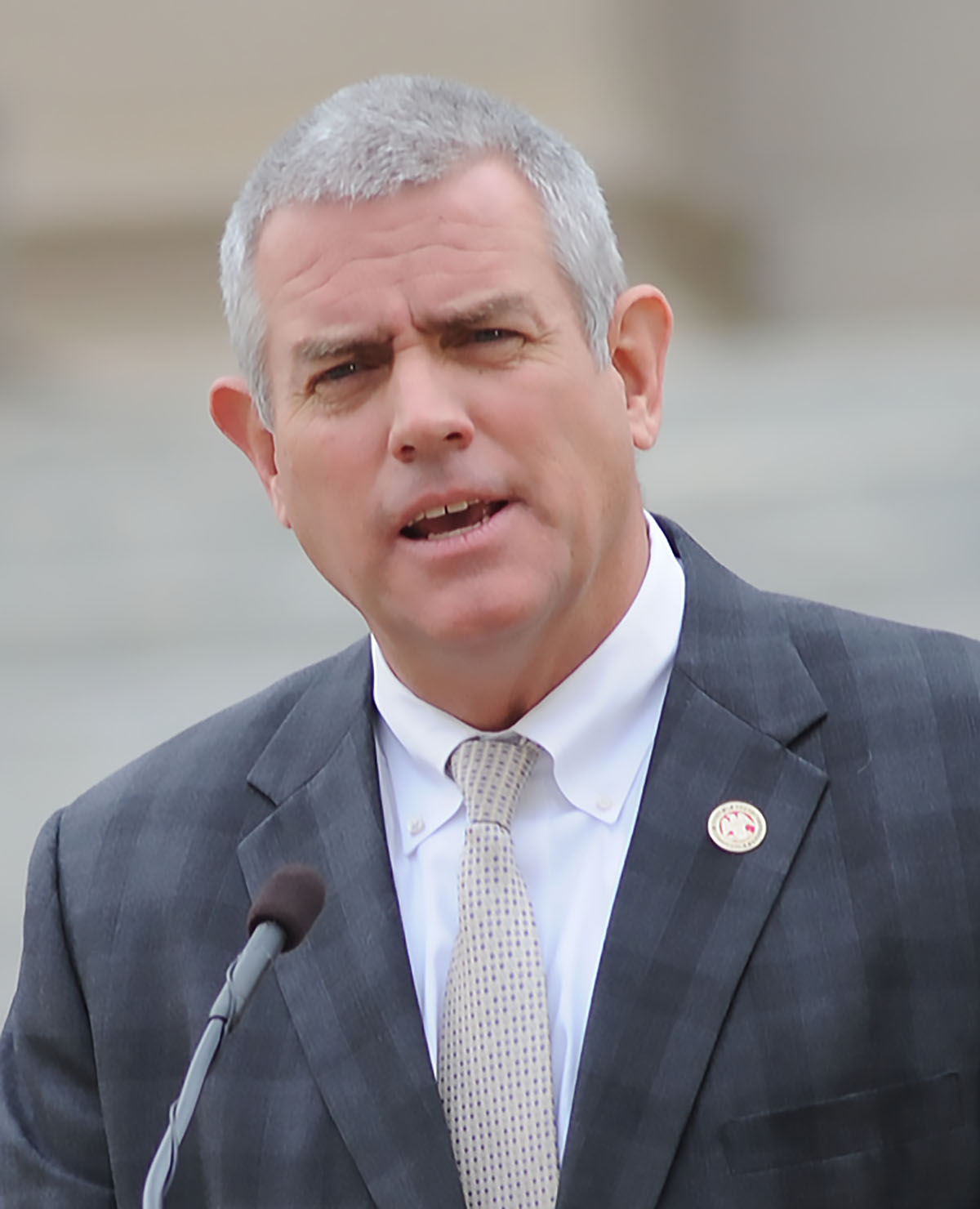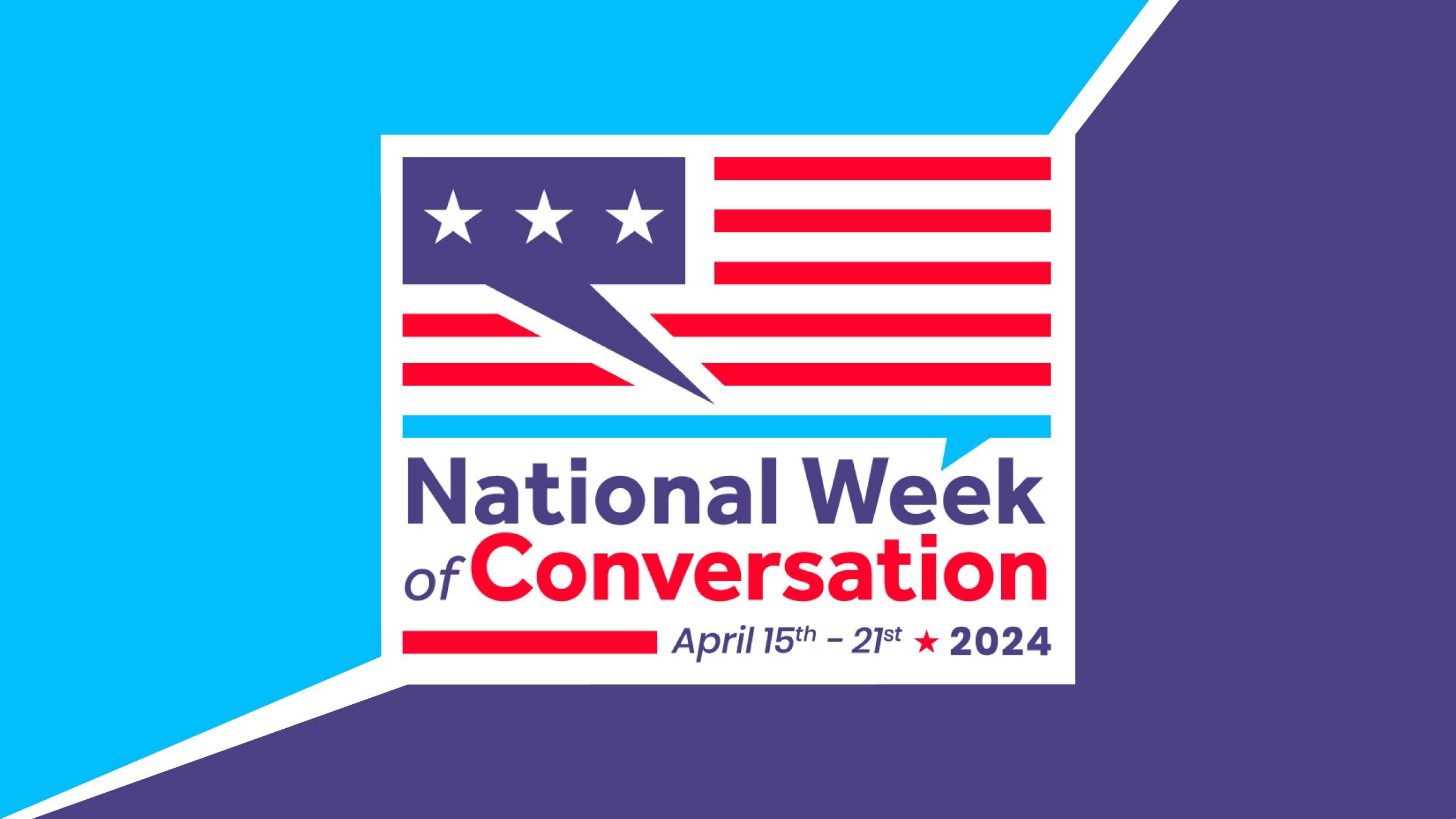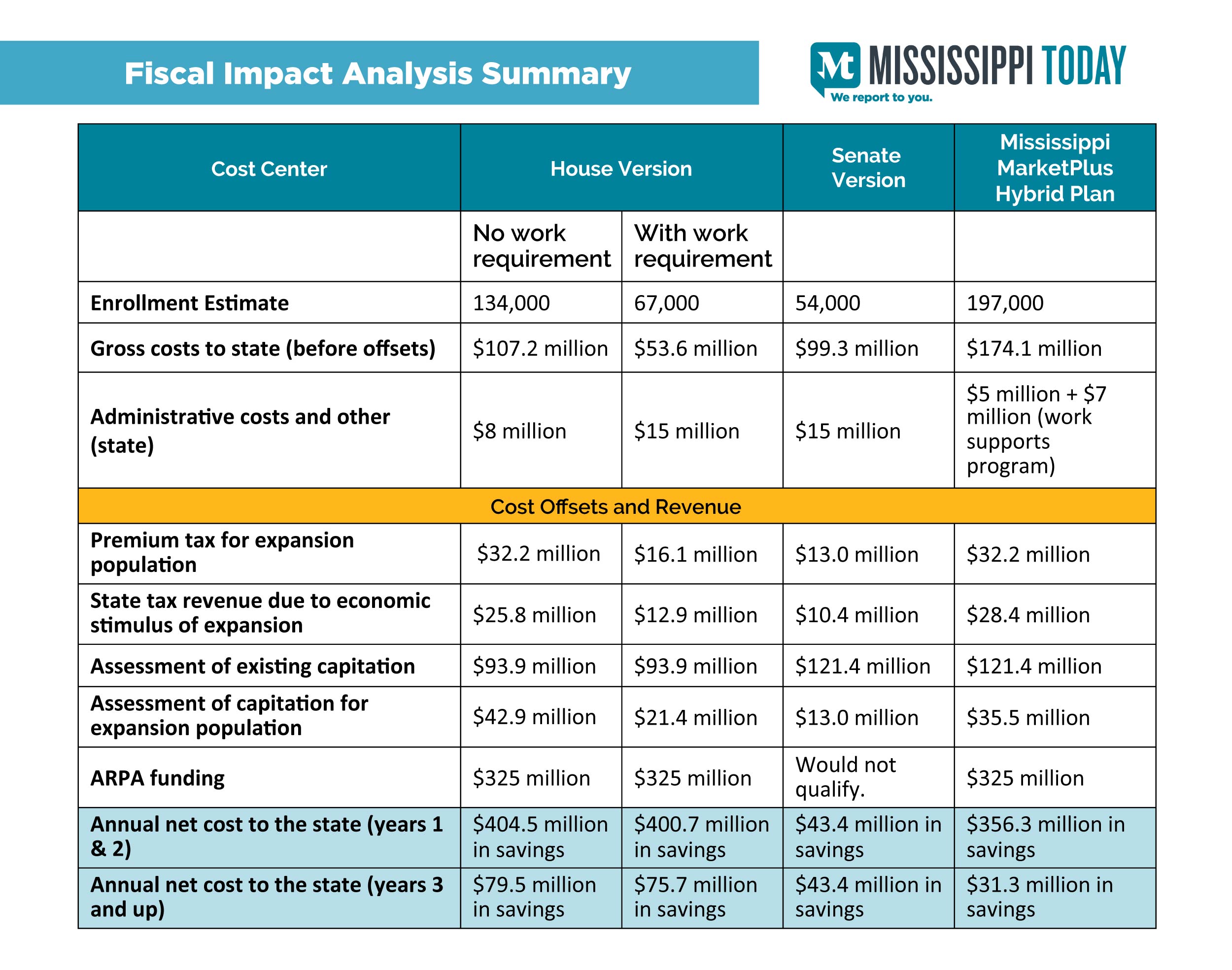Mississippi Today
Six months after Dobbs ruling, the work of Gunn’s ‘Commission on Life’ remains a mystery

Six months after Dobbs ruling, the work of Gunn's ‘Commission on Life' remains a mystery
When House Speaker Philip Gunn, R-Clinton, announced he would create a special commission after the Supreme Court overturned Roe v. Wade, he said the group would develop “Next Steps for Life.”
Nearly six months later, those next steps remain unclear. The Speaker's “Commission on Life” has identified no concrete measures or specific policy proposals, several members told Mississippi Today.
The legislative session begins in 19 days.
“We have not hammered out anything as far as I have seen for this legislative session as of yet,” said Rep. Otis Anthony, D-Sunflower, who said the commission had held about eight meetings.
The meetings have taken place entirely in private. Gunn told members he didn't want the commission to become a “political football,” Anthony said. Members who spoke with Mississippi Today said they could not share the names of the people they have spoken to during their meetings.
They said Mississippi Today should contact Gunn's office for that information, but his communications director Emily Simmons did not respond to a question asking who had met with the commission.
“The Speaker's Commission is continuing its work, and we will update you once the policy recommendations are finalized,” she told Mississippi Today.
Members who spoke with Mississippi Today said they were divided into subgroups, like faith-based efforts and women's health issues. They heard from numerous pastors as well as doctors.
Other members of the committee contacted by Mississippi Today did not respond to texts, phone calls or emails.
“In the coming weeks, we will have legislation that addresses a lot of those issues,” said Rep. Missy McGee, R-Hattiesburg. “And at that time, we'll really take it from there.”
She declined to answer other questions.
The opacity around the commission means it's not clear what measures will have the support of the speaker when it comes to expanding assistance for moms and families in the next session, other than expanding the tax credit for crisis pregnancy centers from $3.5 million to $10 million. The centers provide pregnancy tests and some direct assistance like formula and diapers, but are not regulated by the state Department of Health and do not offer health care services.
Anthony said the group had discussed the importance of improving access to child care, particularly through faith-based organizations.
“Those in the faith-based community gotta step up to the plate now and really put your money where your mouth is,” Anthony said. “How can we maybe look at helping those mothers who may need those childcare services so they can continue to work or so they won't lose their job?”
On the day the Supreme Court issued its ruling in Dobbs v. Jackson Women's Health Organization, overturning Roe v. Wade and allowing Mississippi's near-total ban on abortion to take effect, Gunn announced he would create the commission. The Health Department estimates the ruling could result in an additional 5,000 births each year– a 14% increase in a state that has the country's highest rates of infant mortality, preterm births and low birth weight babies.
“With love for children and the women who bear them, we move forward to secure strong and lasting legal protections and cultural support for life, and a vibrant network of abortion alternatives,” he wrote on Twitter.
Gunn is a vocal opponent of abortion rights. After the ruling in Dobbs, he told reporters that a 12-year-old molested by a relative should carry the baby to term.
“So that 12-year-old child molested by her family members should carry that pregnancy to term?” Daily Journal reporter Taylor Vance asked at a press conference.
“That is my personal belief,” Gunn said. “I believe life begins at conception.”
It took almost three months for Gunn to name the members of the commission. In a press release at the time, Gunn said the group would focus on encouraging churches, the private sector and nonprofits to “step forward to answer the need.”
The release said the members, who had already been working, wanted to develop plans to engage churches, expand assistance to pregnancy resource centers, expand access to adoption, create jobs for mothers, and improve foster care and child support assistance.
It's also unclear how much Gunn and Republican colleagues in both chambers will prioritize measures designed to further restrict abortion. Abortion is almost completely banned in Mississippi thanks to a law that prohibits the use of “any instrument, medicine, drug or any other substance” to end the pregnancy of a woman who is known to be pregnant. That language clearly applies to medication abortion.
But some Republicans have said they want to see stricter controls on medication abortion, especially because advocates around the country and world have scaled up their efforts to provide access to abortion pills through the mail.
The approach of the House Commission on Life stands in stark contrast to that of the Senate Study Group on Women, Children and Families.
The Senate committee, led by Sen. Nicole Boyd, R-Oxford, held public hearings over four days in September and October. They heard from state and national policy analysts, Mississippi obstetricians and pediatricians and state agency heads. Their hearings focused on maternal and child health care; adoption, foster care and child support; childcare availability and early intervention for kids with special needs. They're heading into the session with a list of policy priorities.
One of the Senate study committee's top policy recommendations, Boyd told Mississippi Today, will be extending postpartum Medicaid coverage from 60 days to 12 months, which Gunn blocked from coming to a vote in the House last session. State Health Officer Dr. Daniel Edney and University of Mississippi Medical Center Vice Chancellor Dr. LouAnn Woodward endorsed postpartum Medicaid extension in their presentations to the committee.
Gunn remains opposed to the measure, which would cost the state about $7 million annually – less than the cost of his proposed tax credit for crisis pregnancy centers.
“I don't see the advantage of doing the postpartum thing,” he told reporters earlier this month.
And his Commission on Life has not spent much time discussing it.
“Yes, it came up,” Anthony said of extending postpartum Medicaid, “but that was kind of all it did.”
The members who spoke with Mississippi Today praised the speaker's closed-door approach and his input during meetings.
“The speaker made it clear that he did not want to try to grandstand,” said Rep. Cedric Burnett, D-Tunica. “If we can do something to help, and we've figured out what to do, just do it. So that's pretty much it. It's not to draw any attention or anything like that.”
“Just by being there, seeing the questions that he asks the ministers – you can tell, if there is something that can help, he wants to do that,” Burnett said.
The members of the Speaker's Commission are: Reps. Otis Anthony, D-Sunflower; Cedric Burnett, D-Tunica; Angela Cockerham, I-Amite; Kevin Felsher, R-Biloxi; Jill Ford, R-Madison; Missy McGee, R-Hattiesburg; Dana Underwood McLean, R-Columbus; Sam Mims, R-McComb; and Lee Yancey, R-Brandon.
This article first appeared on Mississippi Today and is republished here under a Creative Commons license.
Did you miss our previous article…
https://www.biloxinewsevents.com/?p=200877
Mississippi Today
On this day in 1963
April 16, 1963

Martin Luther King Jr. wrote his “Letter from Birmingham Jail” on scraps of paper and in the margins of newspapers.
“I am in Birmingham because injustice is here,” he wrote.
Jail trusties passed his words to his lawyers, who transformed the handwriting into a 21-page typed letter to eight white clergymen who had chastised him for breaking the law.
King reminded them that everything that Adolf Hitler did in Germany was “legal” and everything the freedom fighters did in Hungary was “illegal.”
“It is the duty of people to break unjust laws,” he wrote. “Injustice anywhere is a threat to justice everywhere.”
In response to criticism that his protest was “unwise and untimely,” King responded, “I have never yet engaged in a direct-action movement that was ‘well timed,' according to the timetable of those who have not suffered unduly from the disease of segregation. For years now I have heard the word ‘wait.' It rings in the ear of every Negro with a piercing familiarity. This ‘wait' has almost always meant ‘never.'”
He said he wished these ministers had praised the protesters “for their sublime courage, their willingness to suffer and their amazing discipline in the midst of the most inhuman provocation. One day, the South will recognize its real heroes.”
This article first appeared on Mississippi Today and is republished here under a Creative Commons license.
Mississippi Today
Being Oxford’s mayor means listening first

I love Oxford. I love Mississippi. I love America. Loving America also means loving Americans. Yet, we are at a time in our history where the rhetoric only seems to get more and more divisive, and the toxic polarization is sadly becoming something we accept as the norm. We have gone past disagreeing to disliking – and even despising – those who don't agree with us. We've lost sight, in many cases, of the possibility of understanding and respecting each other.
So, do we throw in the towel? I don't think so. Accepting the idea that our communities and country are hopelessly divided can only end badly for all of us.
Studies show that most of us are actually tired of division. If you, like me, long for peace in our families, cooperation in our communities and unity in our country, let's talk. Or actually, let's listen.
When I was elected Mayor of Oxford in 2017, I knew that in order for our community to reach its greatest potential, we had to create space for community conversation. I was introduced to the Listen First Project and immediately signed on and took the pledge along with hundreds of other elected officials committing to listen first to understand. At its core is the hope that we will see each other across differences and not see problems or issues, but people and experience human connection. In 2017, I felt like being a part of this work was important. It seems even more so in 2024.
The Listen First Project has partnered with the National Week of Conversation for the Better Together Film Festival providing opportunities for us to come to the table and listen. Throughout my seven years as Mayor, I have focused on developing leaders within our city workforce. It is important that we prepare our workforce for the Oxford of the future. I believe that sharing this opportunity to present a short film and facilitate conversation as part of the Better Together Festival provides an opportunity that allows city leaders to experience something unique and potentially life-changing. This is a group of people who are leaders in departments across our community. They are setting the tone in their departments and in our community. We share the goal of leaving Oxford better than we found it, and we share hope for Oxford's future. These conversations are where we build bridges for the future and where real change can begin. Employees are not obligated to come but are making a choice to lean into something that can help them do their jobs better and to understand others more fully.
National Week of Conversation is a time to practice courage over contempt. Are you satisfied with the tension in our communities? I'm not. The “other side” is not going away no matter what side you are on. We can't wait on this to be addressed at a state or national level. We also can't minimize the effect that even small efforts have. As Margaret Mead so accurately stated, “Never underestimate the power of a small group of committed people to change the world. In fact, it is the only thing that ever has.” There is hope. And, we all have a role to play.
Join the conversation.
Join us at Noon on Friday, April 18 for a VIRTUAL lunch and learn session exploring tools to make us better listeners, and in turn, better equipped to engage in meaningful conversations across differences.
The session will be led by Dr. Graham Bodie, professor and Interim Chair of the Department of Media and Communication in the School of Journalism and New Media at the University of Mississippi.
This event is free and open to the public. Register to receive more information.
This article first appeared on Mississippi Today and is republished here under a Creative Commons license.
Did you miss our previous article…
https://www.biloxinewsevents.com/?p=349990
Mississippi Today
Experts analyze House, Senate Medicaid expansion proposals, offer compromise plan

As Mississippi lawmakers look for compromise between widely differing House and Senate Mississippi Medicaid expansion plans, experts with a health research group have projected the costs, savings and efficacy of the plans and offered a third, potential compromise plan.
The analysis shows that under each plan, the state would see net annual savings – ranging from tens of millions to hundreds of millions of dollars – by expanding the state-federal Medicaid program to cover working, poor and uninsured Mississippians. The plans, the study says, also vary widely in how many Mississippians would be covered – from around 50,000 to nearly 200,000.
The study was commissioned by the Center for Mississippi Health Policy and conducted by the Hilltop Institute at the University of Maryland, Baltimore County. Hilltop has studied Medicaid expansion nationwide and recently testified before the Mississippi House Medicaid Committee.
“We wanted to get some updated numbers based on publicly available data,” said Morgan Henderson, director of analytics and research for Hilltop. “We really want to make sure folks having these discussions have data points they need.”
The study takes the House and Senate plans at face value, even though both contain elements not likely to be approved by the federal Centers for Medicare and Medicaid Services. The Senate plan, for instance, includes a stringent work requirement for coverage that, besides potentially costing millions in administrative fees, isn't likely to be approved by CMS.
Both the House and Senate plans contain another potential poison pill that could prevent expansion from being implemented. They have 12-month moratoriums on people who qualify for the expanded Medicaid coverage from dropping private coverage and applying for Medicaid. CMS is highly unlikely to approve this, and such moratoriums would probably not meet constitutional muster in a court.
The options
Mississippi Senate plan
One striking difference between the Senate plan and the House and compromise plans is the Senate one would turn down about $1 billion a year in federal money to cover more expansion costs. It also would forego nearly $700 million over the first two years in enhanced federal funding that some refer to as a “signing bonus” for states that fully expand Medicaid per the federal Affordable Care Act.
The Senate plan would provide coverage to people making up to 100% of the federal poverty level – about $15,000 a year for an individual. Hilltop estimates this plan would cover about 54,000 people, although Senate leaders said they estimate about 40,000 people would sign up.
The Senate plan would require participants to work 120 hours a month or be enrolled as a full-time student or in a workforce training program. It would exempt some from this requirement, including parents of children under 6, people mentally or physically unable to work or those who are caregivers to disabled family members.
Cost
The state's upfront cost of the Senate plan would be paid by a 3% tax on Medicaid managed care providers.
Hilltop estimates the Senate plan would cost the state a little over $114 million per year, including $15 million in administrative costs. But when these costs are offset by the tax on providers, the economic stimulus of expansion and other offsets or revenue, Hilltop estimates a net savings to the state of $43.4 million a year.
Mississippi House plan
The House plan would provide Medicaid coverage for people making up to 138% of federal poverty level, a little more than $20,00 a year for an individual. Hilltop estimates this would cover about 134,000 Mississippians (again, factoring in the “moratorium” on leaving private coverage).
The House plan calls for work requirements – 20 hours a week or enrollment as a student or in workforce development – but would still go into effect without the requirements if CMS fails to approve them.
Under this plan, Mississippi would draw down about $1 billion a year in increased federal Medicaid payments, and over the first two years, another nearly $700 million in enhanced federal payments.
Cost
The state share of upfront costs for the House plan would be covered by a 4% tax on Medicaid managed care providers.
Hilltop estimates the House plan, with no work requirement approved, would cost a little over $115 million, including $8 million in administrative costs. But when these are offset by the tax on providers, economic stimulus and other offsets or revenue, Hilltop estimates an annual savings for the state of more than $404 million a year for the first two years, then $79.5 million a year for the third year and beyond.
House Speaker Jason White and others have noted that the enhanced federal payments to the state totaling nearly $700 million over the first two years would cover all state costs for the first four years of the House expansion plan. White also noted that the House plan, even if a work requirement is not approved, would require the managed care organizations to track employment and other data from those covered.
Compromise ‘hybrid plan‘
Hilltop's “Mississippi MarketPlus Hybrid Plan” would offer expanded Medicaid coverage through the state's managed care program for those making under 100% of the federal poverty level. For those making 100% to 138% (up to $20,000 for an individual) of poverty level, the plan would use federal money to provide assistance for them to buy private insurance plans through Mississippi's marketplace exchange.
Hilltop estimates this plan would provide coverage for 197,000 Mississippians.
The plan would require managed care companies to provide employment support and require mandatory referral to workforce training. It would also require those covered to pay marketplace insurance co-pays, but would not include a work requirement or moratorium on people leaving private insurance.
Like the House plan, this plan is expected to qualify the state for enhanced federal Medicaid payments and the two-year “signing bonus” of nearly $700 million.
Cost
The plan, like the Senate's, includes a 3% tax on Medicaid managed care providers to help cover state costs.
Hilltop estimates the upfront cost to the state for this plan would be a little more than $186 million, including $12 million in administrative costs (including work support). But these would be offset by the tax on providers, economic stimulus from expansion and other offsets or revenue. Hilltop estimates a net savings to the state for this plan of more than $356 million a year for the first two years, then $31.3 million a year in savings for years three and up.
The Hilltop study also noted this plan would allow the state to receive a 90% federal match for services currently funded only with state dollars, including hospital services for incarcerated people and some behavioral health services.
Other findings
Hilltop's report says that Medicaid work requirements – when they were previously allowed by the feds – have not shown to increase workforce participation. It said, “Moreover, the Arkansas experience demonstrates that the administrative burden in reporting work status can lead to Medicaid coverage loss for the working poor – thus hurting the exact individuals designed to be covered under work requirements.”
A Georgia program similar to the Mississippi Senate's plan in several regards, has shown that stringent work requirements result in low enrollment and high administrative costs, the Hilltop study notes. As of recently, the Georgia program had enrolled only a few thousand people and over 90% of its costs to-date have been administrative costs and consulting fees. Georgia is still battling the federal government in court over its work requirements.
The Hilltop study found the Senate's plan “contains high budget risk” to the state. Since the plan eschews extra federal funding available for expansion, “if enrollment exceeds estimates, there would be proportionally greater budget overruns in the Senate version than the alternative plans.” It noted that to protect state coffers, language could be inserted to the House or hybrid plan that rescinds the expansion should the enhanced federal match drop.
This article first appeared on Mississippi Today and is republished here under a Creative Commons license.
Did you miss our previous article…
https://www.biloxinewsevents.com/?p=349711
-
Mississippi News2 days ago
Mississippi will soon be bombarded with cicadas
-
Mississippi News6 days ago
Community rallies behind Starkville High basketball coach
-
SuperTalk FM6 days ago
Ex-cop arrested in connection to killing at Jackson apartment complex
-
SuperTalk FM1 day ago
4 tornadoes touched down in Mississippi during latest round of severe storms
-
SuperTalk FM2 days ago
2 Jones County correctional officers arrested in smuggling bust
-
Mississippi News6 days ago
One dead, one injured after severe storms hit Mississippi
-
Mississippi News4 days ago
Columbus schools may see needed upgrades with bond issue
-
Local News2 days ago
Almost 3,500 Mississippi Veterans have enrolled in VA health care in past 365 days, 28% increase over last year










































